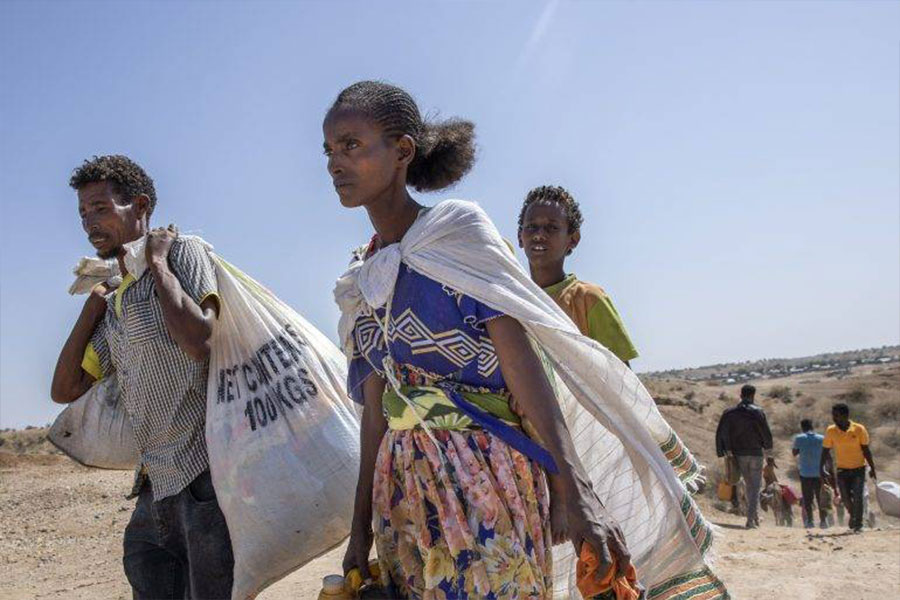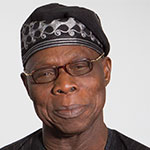
Editorial | Dec 04,2021
Dec 4 , 2020.
To the administration of Prime Minister Abiy Ahmed (PhD), there is a clear victor in the conflict between the forces of the federal and Tigray regional governments; and, it is the former. He declared the completion of military operations in the region on the night of November 28, 2020, to the delight and jubilation of his supporters.
Two days later, appearing before parliament, he was nothing less than triumphant, going on to narrate his struggles with leaders of the Tigray People’s Liberation Front (TPLF) since his first days in office. It was a session where he attempted to justify the military operation in the region as well as to squarely rest the various outbursts of political violence across the country over the past two years on the TPLF. He tried to shift the blame for the horizontal conflicts that mostly define his years in office squarely to his political foes in the TPLF.
Indeed, it was a surprising turn of events to see the federal forces make such headway against an organisation that has long prided itself in expertise that is military. Victory may be a hard claim, but it is not easy to deny that many of the major towns in the region are now under the control of the federal government, including Meqelle. State and affiliated media houses have also been reporting from Meqelle a few days after the declaration of victory - the only source of information in many cases given the nearly absolute blackout of communication lines in the region. Images showing people out and about shopping were published by the state media, a sharp contrast to other images circulated in social media showing streets deserted and roads blocked by stones and concrete.
However, telecom services have partially resumed in some towns of the region, and the central bank appears to be confident enough of the situation on the ground that it has ordered the reactivation of accounts that were opened in the region.
Perhaps most telling is the widely reported surrender of Keria Ibrahim, one of the nine political bureau members of the TPLF and the former speaker of the House of Federation. She had yet to appear before the public media days after the state media reported her surrender earlier last week.
It could be such developments that gave the Prime Minister and his supporters reason for celebration, despite his call for "humility in the face if victory." But it also hid a bitter truth they have preferred to ignore for the time being - that the fighting continues in the terrains of Tigray. It may not be obvious from his tone, or his appearances in the days after, but it is clear that the TPLF still lives, though in a heavily reduced version of itself. The Prime Minister himself brought this up during the parliamentary session, where he said that the forces of the TPLF have moved into Hagere Selam in central Tigray region. They have been dethroned but not defeated.
A few hours after the declaration of victory by the Prime Minister, the TPLF fired rockets into neighbouring Eritrea’s capital, Asmera. Short of visual evidence, leaders of the TPLF and its supporters have been asserting that several divisions of the Eritrean army are fighting alongside Ethiopia`s Defence Forces, a claim to which the world appears to have paid no attention. If true, it would be the elephant in the room.
Describing the withdrawal of his forces from Meqelle as a “strategic retreat,” TPLF Chairman Debretsion Gebremichael (PhD) has been insisting to the international media that the fight continues. A protracted civil war in the form of insurgency is what is most feared.
Though the pace at which the TPLF has lost territories is unprecedented, it cannot be discounted as a potent political and military organisation. Much of the senior membership remains out and about, including its veteran military commanders, and retains enough force to at least draw out the armed conflict. It should be clear that, though it may not have been their plan at the outset, its senior leadership has experience fighting in the mountains.
"We're very worried, all of us, about a protracted civil war," said Chris Smith, a US Republican legislator, in a congressional hearing last week.
What makes the claim by the federal government too early to embrace is the fact that it has yet to deal with the political matter. It may have won the battle, but a war to be fought politically remains. Whatever its military failures, the TPLF is still an organisation that commands significant political capital on the ground. Two of the three goals the federal government had set for the military operations remain unmet. The TPLF is not disarmed, and its leaders have not been captured to face trial. There is an attempt to move forward in the third objective, forming a provisional administration up until next elections.
The administration hopes this would be addressed through the help of a caretaker administration, much in the fashion Addis Abeba had after the contested elections of 2005. Headed by Mulu Nega (PhD), it plans to replace leaders within the structure of the Tigray regional government except for the lowest levels of administration, such as weredas. Work is already underway in this regard. For instance, a caretaker mayor and council for the town of Shire have been elected. Short of a political settlement, how this process will pan out without major impediments while a rival organisation that deems itself legitimate continues to operate in parts of the region, is not clear. Such is a roadmap that lacks political imagination.
Part of the caretaker’s legal mandate comes from a legislative body, the House of Federation, whose stay in office was declared unconstitutional by the TPLF. As a ruling party in the Regional State, it has also gone forward with a regional election, using its own electoral commission. Although it was deemed “null and void” by the House of Federation, it is impossible to escape the fact that it attempted to use it as a legitimising process. Around 2.7 million people were registered to vote in the region, and almost all did this by voting for the TPLF, according to the region’s election commission, a body the federal government deemed unconstitutional.
Enforcing administration in parts of the region under the control of the federal government, while its legitimacy is contested by a party fighting in the rural parts of the country, entails a complexity of unprecedented proportions. The government may claim victory, and indeed it may have won important battles, but it has not won the "war."
Complicating matters all the more is the impact it has had on the region. It does not seem to be doom and gloom like observers had predicted as the two parties came ever closer to armed conflict, but it has threatened stability nonetheless. The casualties yet to emerge, on both sides, can be too horrific to contemplate. The war has sent almost 50,000 refugees across the border to Sudan, a fourth of the amount the UN refugee agency had been preparing to house if fighting continues for half a year. The agency has recently launched an appeal for almost 150 million dollars to close the funding gap. The profiling of people native to the region, the purging of many from public service, the deactivation of bank accounts, the suspension of overseas travel, the random searches of homes, and the anxiety as well as trauma they have to endure remain the ugly reminders of this war.
No less worrying is the fate of the around 100,000 Eritrean refugees in Tigray Regional State who have been cut off from the supplies of humanitarian aid over the course of the armed conflict.
Fortunately, some positive news may be found in the form of an agreement between the UN and Ethiopia’s government to provide aid to areas in the Tigray region under the control of the armed forces. With agencies reporting that supplies are running out for millions of people, unhindered access to humanitarian aid could not come sooner.
The mountain that has to be climbed to declare victory though is more than allowing humanitarian access, rebuilding infrastructure or realising political certainty. It also has to do with the need to bring about social cohesion through a broad political settlement. It is subsequent events such as these that have led to the country’s political movements to claim contradictory historical narratives and rejecting the foundation for state-building. It has created social cleavages deep enough that armed conflict is nearly unavoidable whenever there is political change.
It is only when the Ethiopian state reconciles the voices and movements that deny the legitimacy of one another that "victory" can be meaningfully claimed.
PUBLISHED ON
Dec 04,2020 [ VOL
21 , NO
1075]

Editorial | Dec 04,2021

My Opinion | Aug 07,2021

Fortune News | Oct 23,2021

Verbatim | Nov 20,2021

Viewpoints | Dec 23,2023

My Opinion | May 04,2019

Viewpoints | Mar 16,2019

Editorial | Sep 04,2021

Radar | Jun 08,2019

Commentaries | Jul 06,2019

My Opinion | 131768 Views | Aug 14,2021

My Opinion | 128151 Views | Aug 21,2021

My Opinion | 126097 Views | Sep 10,2021

My Opinion | 123719 Views | Aug 07,2021

Dec 22 , 2024 . By TIZITA SHEWAFERAW
Charged with transforming colossal state-owned enterprises into modern and competitiv...

Aug 18 , 2024 . By AKSAH ITALO
Although predictable Yonas Zerihun's job in the ride-hailing service is not immune to...

Jul 28 , 2024 . By TIZITA SHEWAFERAW
Unhabitual, perhaps too many, Samuel Gebreyohannes, 38, used to occasionally enjoy a couple of beers at breakfast. However, he recently swit...

Jul 13 , 2024 . By AKSAH ITALO
Investors who rely on tractors, trucks, and field vehicles for commuting, transporting commodities, and f...

Jul 6 , 2025 . By BEZAWIT HULUAGER
The federal legislature gave Prime Minister Abiy Ahmed (PhD) what he wanted: a 1.9 tr...

Jul 6 , 2025 . By YITBAREK GETACHEW
In a city rising skyward at breakneck speed, a reckoning has arrived. Authorities in...

Jul 6 , 2025 . By NAHOM AYELE
A landmark directive from the Ministry of Finance signals a paradigm shift in the cou...

Jul 6 , 2025 . By NAHOM AYELE
Awash Bank has announced plans to establish a dedicated investment banking subsidiary...